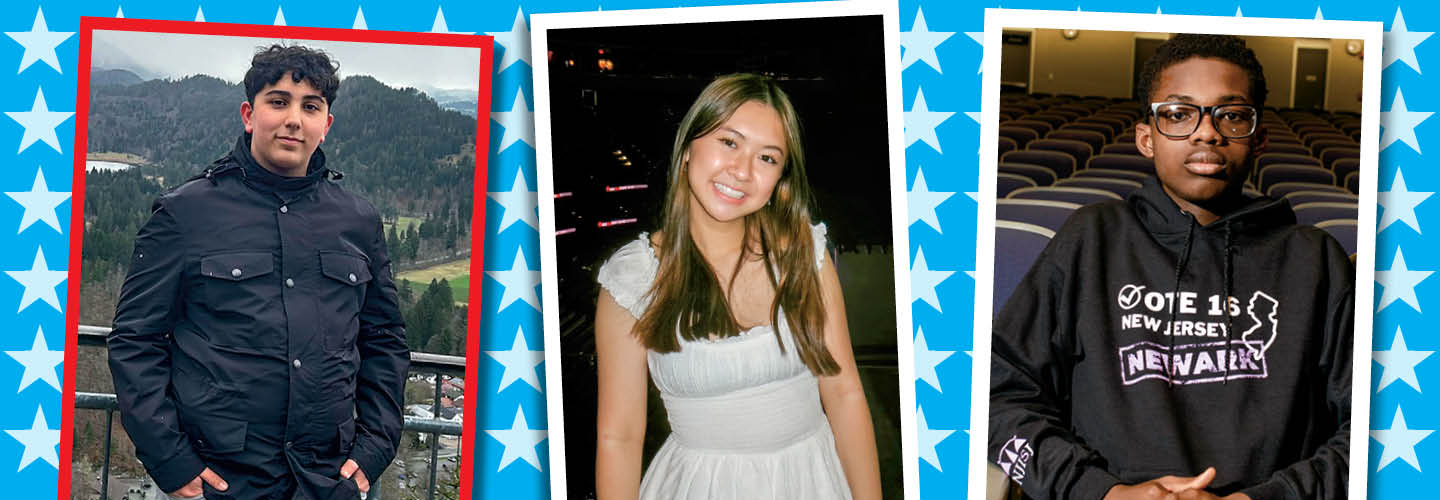Like many conservatives, David Sharyan says he’s worried about inflation, the economy, and the southern border. But he’s also annoyed that he can’t do anything about those issues at the ballot box.
“I get taxed,” David says. “But I don’t get a voice in my representation.”
There’s a reason for that: David is 17, a high school senior who lives outside Portland, Oregon, and works as a host at a Mexican restaurant. He’s also the chair of the High School Republican National Federation and a proponent of lowering the voting age—an idea that’s gaining new visibility since the United Kingdom announced its intention in July to allow 16- and 17-year-olds to vote.
While such a nationwide change would face an uphill battle in the United States, where any alteration to the voting age would require a constitutional amendment, more than a dozen cities have opened the door to young voters in some elections, with momentum seemingly growing.
Last November, voters in Albany, California, overwhelmingly passed a measure lowering the voting age to 16 for local and school district elections. Two months later, lawmakers in Newark, New Jersey, passed legislation allowing 16- and 17-year-olds to vote in school board elections. College Park, Maryland, approved younger voting in April. Some states also already allow 17-year-olds to vote in primaries or caucuses if they’ll turn 18 by the general election.
LaJuan Allen, the director of Vote16USA, an advocacy group that seeks to lower the voting age to 16, says the movement draws wide support from those who are already tantalizingly close to casting their first ballots.
“It is youth up and down this country, no matter the political party, that are pleading with adults to get these things right,” Allen says, “because they are most significantly impacted by the decisions that are made today.”
Like many conservatives, David Sharyan has concerns. He is worried about inflation, the economy, and the southern border. But he’s also annoyed that he can’t vote.
“I get taxed,” David says. “But I don’t get a voice in my representation.”
David is 17 and a high school senior who lives outside Portland, Oregon. He works as a host at a Mexican restaurant. He’s also the chair of the High School Republican National Federation. He feels that the voting age should be lowered. The idea is gaining new visibility since the United Kingdom announced in July that it plans to let 16- and 17-year-olds vote.
Lowering the voting age nationwide would be difficult in the United States. Here, changing the voting age requires a constitutional amendment. However, dozens of cities have opened the door to young voters in some elections, and the momentum seems to be growing.
Last November, voters in Albany, California, overwhelmingly passed a measure lowering the voting age to 16 for local and school district elections. Two months later, lawmakers in Newark, New Jersey, passed a law allowing 16- and 17-year-olds to vote in school board elections. College Park, Maryland, approved younger voting in April. Some states also already allow 17-year-olds to vote in primaries or caucuses if they’ll turn 18 by the general election.
LaJuan Allen, the director of Vote16USA, an advocacy group that seeks to lower the voting age to 16, says the movement draws wide support from those who are close to the voting age.
“It is youth up and down this country, no matter the political party, that are pleading with adults to get these things right,” Allen says, “because they are most significantly impacted by the decisions that are made today.”

